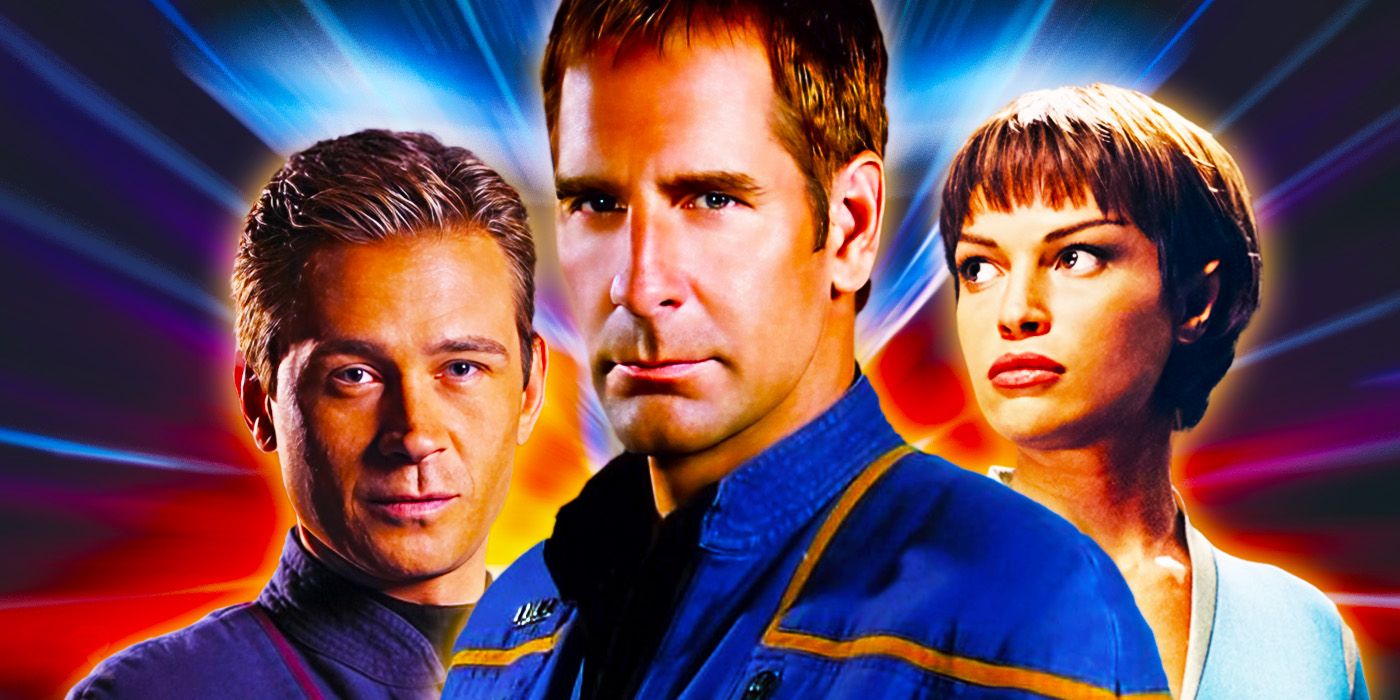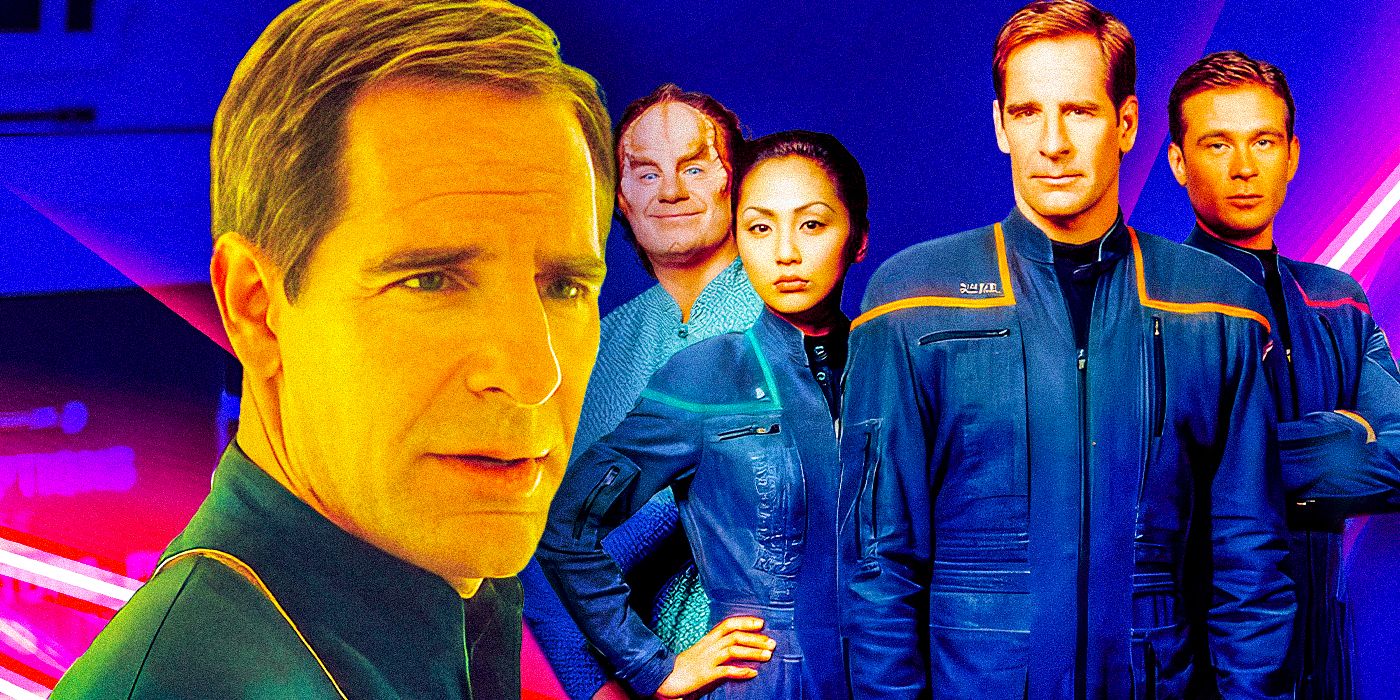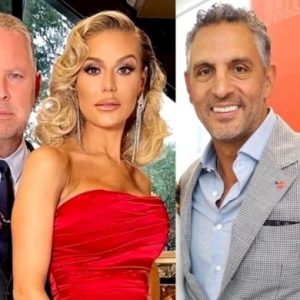Summary
- Star Trek: Enterprise entered a saturated market, and was hindered by bad timing, societal change, and poor creative choices.
- Hoshi Sato, Travis Mayweather, and Malcolm Reed were under-developed and lacked depth.
- Star Trek: Enterprise missed opportunities with its prequel concept, failing to explore humanity’s early struggles and experiences as Earth first ventured into deep space.
Over two decades after the initial launch of Star Trek: Enterprise, the prequel series remains divisive among viewers. Airing on UPN between 2001 and 2005, Star Trek: Enterprise was the fifth series in the space-faring franchise and followed the adventures of Captain Jonathan Archer (Scott Bakula) and the crew of the NX-01, the first Starship Enterprise. The series’ prequel concept established the show a century before the events of Star Trek: The Original Series. Receiving mixed responses among audiences, the premise offering a novel originality but perhaps long-term predictability, Star Trek: Enterprise sadly couldn’t match the ratings of its sister shows.
Retconning Star Trek’s multiverse timeline, Star Trek: Enterprise faced many unfair external challenges that unduly affected the series’ chances of success and resulted in premature cancelation during the show’s widely acclaimed fourth season. With the conclusion of Enterprise season 3’s Xindi arc, a new showrunner in the late Manny Coto, and a committed cast, Star Trek: Enterprise found its footing and demonstrated a clear promise for great things in future seasons. Securing a growing and loyal fan base in the years since its cancelation, Star Trek: Enterprise’s reputation has vastly improved with time and ongoing references in the franchise’s other projects. Here’s a look at 10 harsh realities of watching Star Trek: Enterprise 23 years later.

Star Trek: Enterprise introduced new faces to the prequel series set a century before the events of Star Trek: The Original Series.
10 Star Trek: Enterprise Had Bad Timing
Franchise Fatigue & Societal Change Contributed To The Show’s Lack Of Success
Star Trek: Enterprise came at the tail end of Star Trek: Voyager and Deep Space Nine. These seven-season series followed seven seasons of Star Trek: The Next Generation and a steady stream of movies that eventually stalled in 2002 with the release of Star Trek: Nemesis. Star Trek: Enterprise, unfortunately, entered a heavily saturated market with viewing figures already dropping for its predecessor’s shows. With the success of serialized shows like 24 and political and social upheaval following 9/11, Star Trek: Enterprise faced a series of external challenges that would ultimately lead to cancelation.
Enterprise co-creator Rick Berman fought to not release a new Star Trek show immediately after Star Trek: Voyager ended, but he was overruled by Paramount and UPN.
9 Important Enterprise Characters Were Awkward Or Under-Utilized
Enterprise only focused on a few main characters
New to the realities of traveling through deep space, the crew of the NX-01 Enterprise was designed to be more relatable to modern audiences – less trained, less Starfleet. Unfortunately, Ensigns Hoshi Sato (Linda Park) and Travis Mayweather (Anthony Montgomery) were underutilized, each receiving a place of relevance in a few episodes. Hoshi’s first away mission reveals an unlikely strength of deep-rooted doubt about her role and a phobia of confined spaces. Lieutenant Malcolm Reed (Dominic Keating), a stickler for regulation, comes across as aloof, awkward, nitpicking, and occasionally unlikeable. Though each character more than earns their place, it’s unfortunate they were not more fully developed at the time.
8 Over-Reliance On Classic Star Trek Tropes & Poor Creative Choices
Predictability & Familiarity Hindered Star Trek: Enterprise
Star Trek: Enterprise was victim to poor creative choices, including a lackluster approach to the series’ intriguing concept and over-reliance on traditional franchise tropes. While the Enterprise season 4 Mirror episodes were significant and directly led to additional arc development in Star Trek: Discovery, other repeated themes often felt tired and overdone. Creators prioritized the franchise’s provenly successful formula over acknowledging Star Trek: Enterprise‘s deliberate attempt at being something different, effectively dismissing opportunities afforded by the show’s concept: alone in a relatively unexplored area of the timeline with limited technology and little-to-no extra-Earth diplomatic relations. The over-reliance on the comfortable and familiar limited the show’s potential for innovative, original storytelling.
Star Trek: Enterprise would have returned to the Mirror Universe if the series had gotten a season 5.
7 Enterprise Episodes Exploring Moral Issues Lacked Courage
Star Trek: Enterprise Drew Attention To Ethical Dilemmas But Failed To Fully Address Them
Star Trek has an impressive legacy of courageously confronting ethical and social issues, and Star Trek: Enterprise maintained this legacy – balancing modern sociological and post-9/11 change with moralistic social commentary. Increasingly dark, Star Trek: Enterprise paired morality with progress, defense, and criminal acts, occasionally casting the Enterprise crew as ethically ambiguous. Captain Jonathan Archer, in particular, mirrors this external adaptation with significant internal growth. Despite noble episodic attempts to address such potential complexities – from raiding and stranding an Illyrian vessel to a pre-Prime Directive dilemma regarding the survival of an alien race – Star Trek: Enterprise reveals an unfortunate consistency to only tackle issues at a surface level.

Star Trek: Enterprise is even better upon rewatching the prequel series. Here are 10 things you may not have noticed the first time around.
6 Star Trek: Enterprise Was Too Sexualized
T’Pol Experiences Pon Farr In Enterprise Season 2, Episode 25 – “Bounty”
Star Trek: Enterprise aimed to seamlessly fit into its early position on the timeline while simultaneously attracting a new, younger audience by embracing a more sexualized tone. Inspired by similar successes in previous series, creators incorporated steamier themes and visuals. Not outwardly crossing into actually sexist territory, the show’s overly suggestive moments did occasionally tiptoe the line between risque and wrong, or purely unnecessary. With much of this context focusing on Subcommander T’Pol (Jolene Blalock), Star Trek: Enterprise raised eyebrows with deliberately provocative moments such as Ensign Hoshi Sato losing her top during a vent crawl, decontamination scenes, or the weird fixation with T’Pol’s “bum” by Malcolm Reed (Dominic Keating).
5 A Lack Of Commitment To Enterprise’s Prequel Concept
Star Trek: Enterprise Missed Opportunities & Important Plots By Not Embracing Its Core Idea
Star Trek: Enterprise had a distinct concept as a prequel to other franchise shows, but lack of commitment to this core idea lessened Enterprise‘s potential for mystery and drama and stymied the series from its launch. Initially pitched as Earth’s first vessel embarking into the unknown with limited support and only primitive technology, the series shifted focus to progressing humankind’s established presence in space. With Star Trek: Enterprise‘s realization undermining the novelty of its premise, a reliance on the Vulcan High Command further eroded the significance of Earth’s efforts. Consequently, the series failed to fully explore humanity’s struggles, advancements, and first contacts, leaving it feeling predictable and lacking vitality.
4 Enterprise’s Temporal Cold War Arc Failed To Connect
Star Trek: Discovery Has Since Significantly Developed Enterprise’s Temporal War Plot
Despite its potential, the idea of Temporal War initially met underwhelming responses among fans.
Star Trek: Enterprise introduced the intriguing concept of a Temporal Cold War to intertwine the prequel with the broader Star Trek universe. Initially established in the pilot episode, “Broken Bow,” Star Trek‘s Temporal Wars would become a central theme in the franchise’s timeline. Despite its potential, the idea of Temporal War initially met underwhelming responses among fans. The Enterprise crew’s involvement with temporal agents, the genetically-enhancing Suliban, and a mysterious benefactor from the future added fascinating complexity to the narrative but suffered from a slow, apparently aimless, and ultimately unsatisfying progression. While the concept had promise, the failure in realization stemmed from poor execution and a lack of clarity.
3 Enterprise’s Controversial Theme Song
Russell Watson Sang The Show’s Divisive Theme, “Where My Heart Will Take Me”
Star Trek: Enterprise’s controversial theme song was selected initially to appeal to a new audience and modernize the franchise. Set to a compilation of scientific advancements documenting historical achievements up to space flight, the lyrical theme aimed to make the show more accessible and distinct by highlighting humanity’s achievements over time. Unable to afford their preferred “Beautiful Day” by U2, the show’s creators selected Diane Warren’s “Faith of the Heart” (sung by Russell Watson) for its inspirational lyrics. Despite a revised version in the show’s third season, the divisive theme significantly impacted Star Trek: Enterprise‘s immediate reception.
2 Star Trek: Enterprise Was Canceled Too Soon
97 Episodes Over 4 Seasons Ran On UPN Between 2001-2005
Declining network viewership, and studio turmoil likely played a more significant role in the show’s demise.
Star Trek: Enterprise was abruptly canceled in 2005, sadly ending the series at its peak. Despite muddled creative choices and mixed viewer reception, external factors like market saturation, declining network viewership, and studio turmoil likely played a more significant role in the show’s demise. Broadcast on UPN from 2001 to 2005, key studio resignations in 2004 led to a significant decrease in executive support and an unfavorable Friday night timeslot for the fourth season. Attempting to save funds, the studio axed its most expensive shows. Cancelation came ahead of an exciting, potential Star Trek: Enterprise season 5 and sparked an unsuccessful fan campaign to save the series.
1 Star Trek’s Most Hated Final Episode
Star Trek: Enterprise, Season 4, Episode 22 – “These Are The Voyages”
Adding insult to the injury of cancelation, Star Trek: Enterprise‘s series finale centered around select characters from Star Trek: The Next Generation using a holodeck roughly two centuries on. Commander William Riker (Jonathan Frakes) assumes the role of ship’s chef to present the episode through interactions and conversations with the NX-01 Enterprise crew. In an attempt to bid a fond farewell to the overall era and seamlessly connect the franchise’s different shows, “These Are The Voyages” has been criticized for its ill-conceived premise and substantial disrespect. Despite the finale falling laughably short of its intentions, the penultimate episode stands as a fitting and respectful conclusion to Star Trek: Enterprise.





